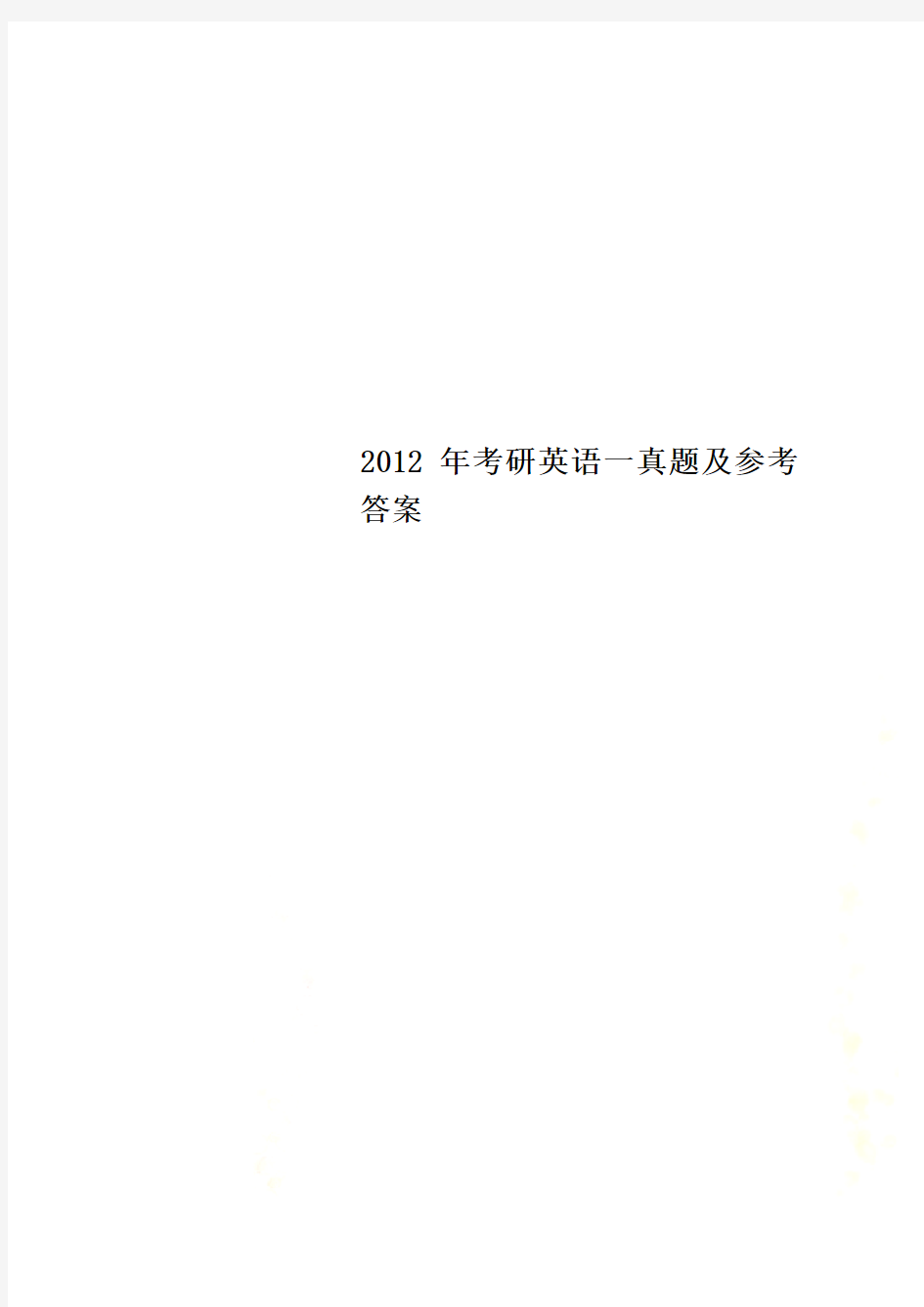
2012年考研英语一真题及参考答案
- 格式:doc
- 大小:296.00 KB
- 文档页数:38


2012年考研英语一真题及参考答案
2012年全国硕士研究生入学统一考试英语(一)试题及答案
Section I Use of English
Directions:
Read the following text. Choose the best word(s) for each numbered blank and mark A, B, C or D on ANSWER SHEET 1. (10 points)
The ethical judgments of the Supreme Court justices have become an important issue recently. The court cannot _1_ its legitimacy as guardian of the rule of law _2_ justices behave like politicians. Yet, in several instances, justices acted in ways that _3_ the court’s reput ation for being independent and impartial.
Justice Antonin Scalia, for example, appeared at political events. That kind of activity makes it less likely that the court’s decisions will be _4_ as impartial judgments. Part of the problem is that the justices are not _5_by an ethics code. At the very least, the court should make itself _6_to the code of conduct that _7_to the rest of the federal judiciary.
This and other similar cases _8_the question of whether there is still a _9_between the court and politics.
The framers of the Constitution envisioned law _10_having authority apart from politics. They gave justices permanent positions _11_they would be free to _12_ those in power and have no need to _13_ political support. Our legal system was designed to set law apart from politics precisely because they are so closely _14_.
Constitutional law is political because it results from choices rooted in fundamental social _15_ like liberty and property. When the court deals with social policy decisions, the law it _16_ is inescapably political-which is why decisions split along ideological lines are so easily _17_ as unjust.
The justices must _18_ doubts about the court’s legitimacy by making themselves _19_ to the code of conduct. That would make rulings more likely to be seen as separate from politics and, _20_, convincing as law.
1. [A]emphasize [B]maintain
[C]modify [D] recognize
2. [A]when [B]lest [C]before [D] unless
3. [A]restored [B]weakened
[C]established [D] eliminated
4. [A]challenged [B]compromised
[C]suspected [D] accepted
5. [A]advanced [B]caught [C]bound
[D]founded
6. [A]resistant [B]subject [C]immune
[D]prone
7. [A]resorts [B]sticks [C]loads
[D]applies
8. [A]evade [B]raise [C]deny
[D]settle
9. [A]line [B]barrier [C]similarity
[D]conflict
10. [A]by [B]as [C]though
[D]towards
11. [A]so [B]since [C]provided
[D]though
12. [A]serve [B]satisfy [C]upset
[D]replace
13. [A]confirm [B]express
[C]cultivate [D]offer
14. [A]guarded [B]followed
[C]studied [D]tied
15. [A]concepts [B]theories
[C]divisions [D]conceptions
16. [A]excludes [B]questions
[C]shapes [D]controls
17. [A]dismissed [B]released
[C]ranked [D]distorted
18. [A]suppress [B]exploit [C]address
[D]ignore
19. [A]accessible [B]amiable
[C]agreeable [D]accountable